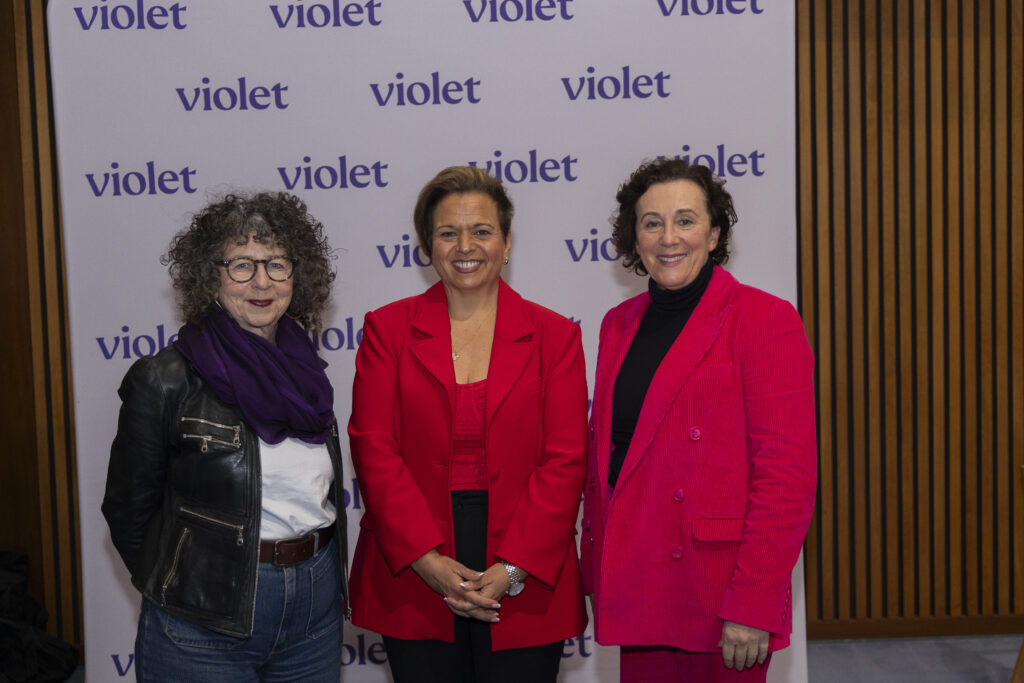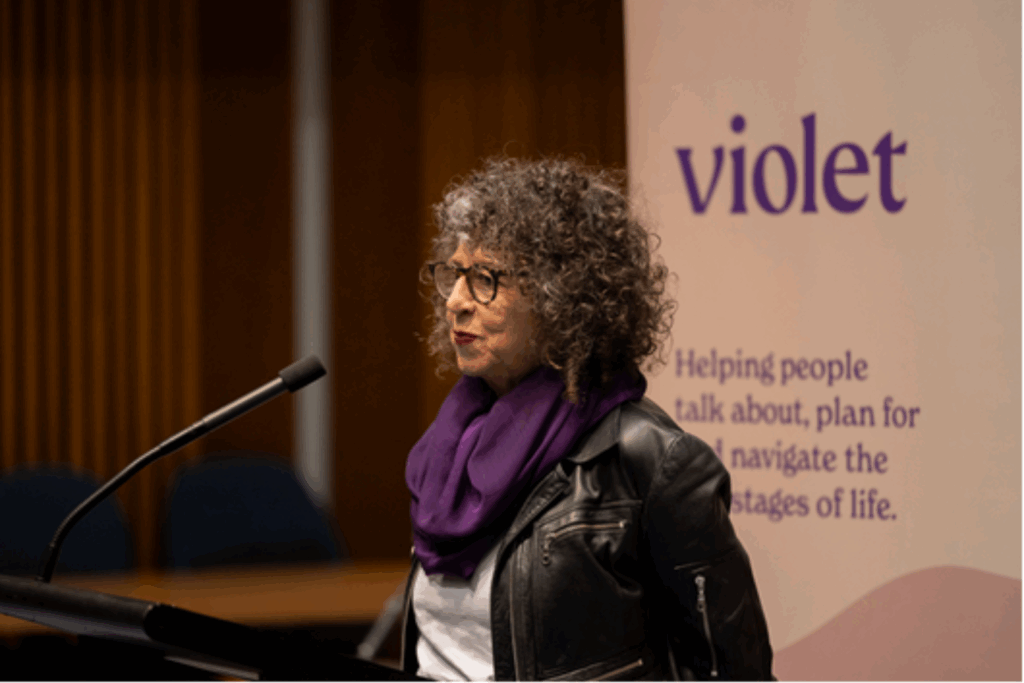Kerry Milligan (Silbery) knew she was carrying too much long before she needed shoulder surgery. The mental health teacher and Gogglebox Australia star had been juggling dementia care for her beloved mother Emmie while supporting her pregnant daughter Isabelle and maintaining her demanding career.
But it wasn’t until a surgeon looked at her pre-operation and said, “You’re part of the sandwich generation, aren’t you?” that the reality hit home. “He could tell because I was doing a lot of lifting,” Kerry recalls. “Lifting walkers, lifting children, lifting everything – and the emotional burden as well.”
Broadcaster Sarah MacDonald knows this invisible crisis firsthand. The trusted journalist and author cared for her dad when her kids were young, and now cares for both her mother and mother-in-law – both in their early nineties – while raising young adults and maintaining her high-profile media career.
“Caring has always had an impact on my career, there’s no way you could say otherwise,” Sarah admits. “I have freelanced a lot because I had so many caring duties. For many years I just couldn’t work full-time.”
The invisible workforce crisis
Last Thursday at Parliament House, these two household names stood as Violet Ambassadors at the launch of Australia’s first CARE Index – the first baseline measure of Australia’s Caregiving and Ageing Readiness Evaluation. The statistics they shared are staggering: Australia scored just 23.1 out of 100 for care readiness.

Today’s sandwich generation refers to all of the people feeling squeezed by competing care responsibilities in midlife – managing careers, supporting multiple generations, juggling finances, and coordinating care from near or far.
Violet’s CARE Index found that among sandwich generation families, 73 per cent work full-time while juggling care responsibilities. The result? 74 per cent are concerned about career advancement impacts, 53 per cent are forced to choose between caregiving and career opportunities, and 67 per cent experience workplace discrimination. Women aged 45-64 face a brutal 42 per cent lifetime earnings gap compared to non-carers.
Today’s sandwich generation carers are spending an average of $2,800 each month supporting aging parents and younger dependents, while shouldering the equivalent of an unpaid 31.7-hour second job.
“It’s the stress of being pulled in so many different directions at once, feeling like you’re not doing anything properly,” Sarah explains. “There’s never enough hours in the day, and there’s just not anything left over.”
Kerry’s experience illustrates the impossible choices. “I ended up curled up in bed crying myself to sleep, saying out loud, ‘Why isn’t somebody looking after me? I need somebody to look after me,’ because I was looking after everybody.”
The public-private divide
What makes these stories particularly poignant is the contrast between public visibility and private struggles. Millions know Kerry as the witty and wise matriarch from Gogglebox, yet behind cameras she was navigating complex healthcare systems and making heartbreaking decisions about residential care for her mum, Emmie.
Sarah has built a career on being the voice Australians trust, yet she’s been quietly managing the same impossible juggle as her listeners. “I’ve probably got a bit of trauma around it,” Sarah reflects on her father’s death while her children were young. “It was pretty traumatic.”
A national crisis hiding in plain sight
By 2030, over 2.2 million Australians will be caring for aging loved ones – more than the populations of Perth and Adelaide combined. The CARE Index reveals almost 60 per cent of Australians are already caring for a loved one or expect to be within a decade.
- 89 per cent of fear for their own mental health (with up to 50 per cent experiencing significant psychological distress)
- 88 per cent feel completely overwhelmed and unprepared
- 82 per cent report work-life balance impacts
- 85 per cent are delaying major life decisions, including home ownership
The economic impact is already measurable – caregiving-related pressures contribute to an estimated $11.5 billion in lost productivity each year. Australia is sleepwalking into the biggest macrosocial and economic crisis of our time. Midlife caregivers are trying to hold our health system together, while their own lives fall apart.
Women shoulder 70 per cent of primary care responsibilities, typically stepping up as daughters or daughters-in-law when aging family members need support.
Solutions within reach
Rather than waiting for new systems or mandates, the CARE Index points to a two-step solution using proven models and existing infrastructure. This crisis needs immediate action, not years of reform. The Index recommends two approaches that can deliver rapid impact: Violet’s specialised tech-enabled model, and better use of the well-funded Carer Gateway program, which has national reach but remains underutilised.
Kerry discovered this firsthand: “I registered with Carer Gateway and that was probably one of the best things I ever did. The aged care counselor’s advice was so invaluable – she told me exactly what words to use when negotiating with various services.”
Time to roar
“Over 25 per cent of constituents in every federal electorate are living the sandwich generation reality,” parliamentary attendees heard last Thursday. “They feel overwhelmed, unprepared, and desperately need practical support.”
Sarah’s advice resonates: “I see you. I feel you. I hear you. Even though you don’t roar – we don’t feel we can roar about it because we feel selfish.”
But perhaps it’s time we started roaring.
This week at the Logies, there was a beautiful moment dedicated to remembering the irreplaceable Emmie Silbery – the cheeky, wonderful woman who made us laugh on Gogglebox for years. Kerry and Isabelle’s courage in sharing their deeply personal journey has helped countless families feel less alone.
The question now is whether Australia is ready to acknowledge this invisible crisis and provide the support systems that women like Kerry and Sarah – and millions of others – desperately need. It’s not just a women’s issue anymore – it’s a political imperative.
Violet provides support and guidance to help people talk about, plan for and manage the later chapters of life. violet.org.au
Become a Women’s Agenda Foundation member and support our work! We are 100% independent and women-owned. Every day, we cover the news from a women’s perspective, advocating for women’s safety, economic security, health and opportunities. Foundation memberships are currently just $5 a month.
Bonus: you’ll receive our weekly editor’s wrap of the key stories to know every Saturday.


